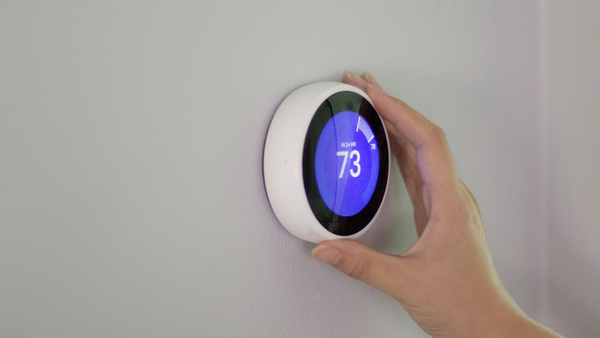September 06, 2023
As homeowners, we all can create a more sustainable and environmentally conscious living space.
By making eco-friendly home improvements, not only do we reduce our carbon footprint, but we also create a healthier and more stylish home.

This article will explore ten practical and impactful eco-friendly home improvement tips you can implement today.
Each tip comes with a clear action plan, explaining why it's beneficial and how to integrate it into your home seamlessly.
Let's embark on this journey to bring your home to life while contributing to a greener planet.
Switching to energy-efficient lighting is a simple yet impactful step towards a more sustainable home. Replace traditional incandescent bulbs with LED or CFL bulbs to significantly reduce energy consumption.
LED bulbs, for instance, use up to 80% less energy and last much longer than incandescent bulbs. This lowers your electricity bills and decreases the demand for fossil fuels used in electricity generation.
Replace five traditional bulbs with energy-efficient LED or CFL bulbs in your most-used rooms.
Consider installing dimmer switches to customise your lighting and save energy.
Educate your household members about turning off lights when not in use to maximise energy savings.
Managing your home's temperature is crucial for energy conservation. Installing a programmable thermostat allows you to create heating and cooling schedules tailored to your daily routine.
By optimising temperature settings, you can save energy during hours when no one is home or when you're asleep.
Install a programmable thermostat and set up energy-saving temperature schedules for weekdays and weekends.
Explore smart thermostats that can learn your preferences and adjust settings automatically.
Review and adjust your thermostat schedules based on changing seasons and occupancy patterns.
One of the major sources of energy loss in homes is poor insulation and leaks.
Sealing gaps around doors, windows, and walls prevents drafts and minimises heat loss during winter, reducing the need for constant heating.
Proper insulation also keeps your home cooler in the summer.
Identify gaps and cracks in your home's envelope and seal them using weather stripping and caulking.
Consider adding extra insulation to your roof and walls to improve energy efficiency further.
Schedule a professional energy audit to identify areas of improvement and ensure optimal insulation.

Water conservation is a vital aspect of eco-friendly living. Swap out old faucets, showerheads, and toilets for low-flow alternatives.
These fixtures reduce water consumption without compromising water pressure, significantly impacting water usage.
Replace at least one high-flow fixture with a low-flow faucet or showerhead.
Install a dual-flush toilet for enhanced water savings and use the appropriate flush option.
Fix any leaks promptly to prevent water wastage and keep your plumbing system efficient.
Transitioning to renewable energy sources is a remarkable commitment to sustainability.
Solar panels enable you to generate your own clean energy, reducing your reliance on non-renewable resources. They contribute to a greener environment and provide long-term financial benefits.
Conduct a solar feasibility assessment for your home and consult with professionals to determine the best solar panel setup for your energy needs.
Explore available incentives and tax credits that can offset the cost of installing solar panels.
Monitor your solar panel system's performance regularly to ensure it's operating optimally and generating the expected energy.
Revamp your home's flooring with eco-friendly options like bamboo, cork, or reclaimed wood.
These materials add a unique touch to your decor and reduce your carbon footprint by utilising renewable resources and minimising waste.
Choose an eco-friendly flooring material for a room that requires renovation or choose one area to start transitioning to sustainable flooring.
Research local suppliers that offer eco-friendly flooring options and inquire about installation processes.
Properly maintain and clean your eco-friendly flooring to ensure longevity and preserve natural beauty.

Collecting rainwater is a simple and effective way to conserve freshwater resources while nourishing your garden.
Rain barrels capture rainwater runoff from your roof, which can be used for irrigation and outdoor cleaning.
Set up rain barrels under your downspouts to collect rainwater.
Connect a soaker hose or a drip irrigation system to distribute the harvested rainwater to your garden.
Monitor rain barrel levels and refill them during dry periods to ensure a consistent plant water supply.
Kitchen scraps and yard waste contribute to landfills and produce harmful methane gas.
Starting a composting system turns your organic waste into nutrient-rich soil that enriches your garden and reduces landfill waste.
Begin composting by designating a bin or outdoor area for organic waste.
Research composting methods and materials that suit your space and needs.
Regularly turn and aerate your compost pile to facilitate decomposition and produce high-quality compost.
When it's time to replace old appliances, opt for energy-efficient models with the ENERGY STAR label.
These appliances consume less energy, reducing greenhouse gas emissions and utility bills.
Research and prioritise upgrading appliances like refrigerators, washing machines, and dishwashers with ENERGY STAR-certified models.
Calculate potential energy and cost savings from using energy-efficient appliances over their lifespan.
Properly maintain and clean your appliances to ensure their optimal performance and longevity.

Switching to natural cleaning products enhances indoor air quality and reduces exposure to harsh chemicals.
Eco-friendly cleaning solutions are equally effective in keeping your home clean and fresh.
Gradually replace conventional cleaning products with natural alternatives.
Explore DIY cleaning solutions using vinegar, baking soda, and essential oils.
Educate your family members on the benefits of using natural cleaning products and encourage their involvement in maintaining a clean and healthy home environment.
Implementing these ten eco-friendly home improvement tips enhances your home's style and functionality and contributes to a more sustainable world.
Remember, every small change you make adds up, and together, we can create a better future for our planet.
A1: While solar panels can significantly reduce your electricity bill, complete elimination may depend on factors such as energy usage, panel efficiency, and local regulations.
A2: Low-flow fixtures use innovative designs that mix air with water, creating a consistent flow with reduced water usage. This maintains adequate pressure while conserving water.
A3: It's recommended to avoid composting meat and dairy products, as they can attract pests and slow down the composting process. Stick to fruit and vegetable scraps, coffee grounds, and yard waste.
A4: Yes, eco-friendly cleaning products are formulated to be effective while avoiding harsh chemicals. They offer safe and efficient cleaning solutions for your home.
A5: Look for the ENERGY STAR label when shopping for appliances. This label indicates that the appliance meets or exceeds energy efficiency guidelines the Environmental Protection Agency set.
Conclusion: Embrace the Green Revolution in Your Home
Congratulations! By embracing these ten eco-friendly home improvement tips, you're on your way to transforming your living space into a sustainable haven.
Each action you take, whether upgrading to energy-efficient lighting, installing solar panels, or adopting natural cleaning products, contributes to a brighter future for our planet.
By making these changes, you're enhancing your home's style and functionality and taking a significant step towards a more sustainable lifestyle. So, bring your home to life while nurturing our shared environment.
Comments will be approved before showing up.
November 09, 2025
Struggling to make your small hallway stylish and functional? Discover smart small hallway storage ideas that blend design with purpose—using light, colour, and vertical space to create calm, clutter-free flow. Learn how to transform your narrow entryway into a welcoming, organised feature of your home.
September 09, 2025
Feeling weighed down by winter clutter and stale air? This guide to the end-of-winter reset reveals five quick, high-impact ways to refresh your home for spring — from decluttering friction points to resetting light, air, and daily rituals. Discover how small shifts can transform your space into one that feels lighter, calmer, and ready for the new season.
September 07, 2025
Discover how lighting shapes your mood at home — from boosting focus with cool daylight tones to creating calm with warm, layered light at night. Learn practical tips to use natural light, smart bulbs, and colour temperature shifts to improve energy, sleep, and well-being.

